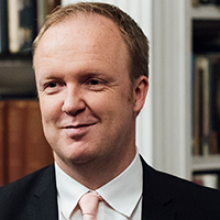
Oxford Summit 2021
14 – 16th July Online Event
The past year has seen unprecedented disruption to our economies and communities. Through the difficult and dark days, it has been encouraging to see the many examples of universities, companies, government agencies, NGOs and others finding ways of working together at pace to develop solutions at scale to the many challenges the COVID pandemic has thrown up.
While we have yet to emerge from the health crisis, many governments, universities and companies, are starting to plan for the economic recovery and a brighter future, with some taking bold steps to shape new ways of working. To support these efforts, the Oxford Summit 2021 aims to bring together senior leaders from universities, industry and government and others to reflect and co-create ideas. In particular we will look at how we can continue to mobilise new and existing partnerships; to develop solutions at pace and scale; to drive an innovation-led economic recovery; and tackle other critical global societal challenges such as climate change.
The Oxford Summit 2021 will bring together senior practitioners to focus on three key themes over three half days:
Day 1 - Wednesday 14th July – Catalysts for innovation at pace
13:30 – 14:50 | Welcome & Keynote
The pandemic has presented society with urgent challenges, with governments acting at pace to tackle different aspects of the crisis, from provision of PPE and ventilators to the development, manufacture and distribution of vaccines.
Companies, University and Governments have had to innovate at pace, developing policy, legislation, products and entirely new research programmes at great speed. This has meant diverting people, resources and capacity to new projects, requiring quick and decisive leadership. Companies in particular have responded very quickly to these needs, often working together with universities. Today’s speakers will share examples of how their organisation has responded, and an audience Q&A will help participants understand what drove the changes, what difficult choices had to be made, and what was possible in a crisis that would have been more difficult before.
Speakers:
Prof Chas Bountra CBE, Pro-Vice-Chancellor for Innovation, University of Oxford
Dr Nick Scott-Ram MBE, Managing Director - Life Sciences, Sensyne Health
Dr Bryan Haynes, Senior Technical Director, Kimberly-Clark Corporation
Chaired by Dr Phil Clare, Deputy Director, Research Services, University of Oxford
14:50 – 17:00 | Research Focus Groups & Feedback
Taking the provocations from the keynote the research focus groups will identify which catalysts and new approaches they want and plan to continue in university-industry-government collaborations.
Day 2 - Thursday 15th July – A return to multilateralism
13:45 – 15:00 | Welcome & Keynote
A return to multilateralism: How are the UK and US Governments grappling with grand challenges in a multilateral way using international partnerships?
This session will consider how the UK and US Governments are grappling with grand challenges in a multilateral way using international partnerships.
Speakers:
Prof Dame Ottoline Leyser DBE FRS, Chief Executive of UK Research and Innovation
Mojdeh Bahar, Associate Director for Innovation and Industry Services at the National Institute of Standards and Technology (NIST)
Chaired by Dr Joe Marshall, Chief Executive of the National Centre for Universities and Business (NCUB)
15:00 – 17:15 | Research Focus Groups & Feedback
With delegates from the UK, US and Europe in attendance there will be an opportunity to reflect on and discuss the practicalities of international partnerships in this new era of Post-Trump and Post-Brexit. The UK’s Integrated Review of Security, Defence and Foreign Policy and the US’ new National Security Strategy and Defence Strategy all set out how each nation intends to work with its partners and how they will tackle international challenges such as climate change and rapid technological change with a clear commitment to multilateral ways of working. This session will deliberately seek to develop practical ideas and suggestions from participants that UKRI and NIST (and others) can consider to develop more international partnerships in the future.
Day 3 - Friday 16th July – Transitioning to a Sustainable Future
13:30 – 14:40 | Welcome & Keynote
Transitioning to a Sustainable Future: Mobilising the University-Industry-Government Partnership to drive innovative solutions at pace and scale
This session aims to identify ways in which the university-industry-government-society partnership can be mobilised to more effectively help societies tackle the climate emergency and accelerate the transition to a sustainable future. We are keen to examine how this partnership can help to drive solutions at both pace and scale.
Keynote speeches will provide examples of how partnerships are currently being leveraged to drive this transition and develop innovative solutions to complex problems at both pace and scale. They will highlight where universities, industry and government have the potential to come together to deliver significant positive impacts, for example through rapid demonstration and application of novel technologies as well as through repurposing existing ones, and through more effectively integrating social sciences and policy elements into the process.
Speakers:
Prof Rob Miller, Chair in Aerothermal Technology and Whittle Laboratory Director, University of Cambridge
Prof Dorota Grejner-Brzezinska, Associate Dean for Research, College of Engineering, The Ohio State University
Chaired by Tomas Coates Ulrichsen, Director of the University Commercialisation and Innovation (UCI) Policy Evidence Unit, University of Cambridge
14:40 – 16:30 | Research Focus Groups & Feedback
Explore specific topics identified in the keynotes in more detail. The discussions will be based on appreciative inquiry, drawing on the experiences of all participants in responding to a series of questions. Our aim is to identify examples of best practice and insights from different countries; specific issues that need to be addressed to further mobilise partnerships to drive the transition to a sustainable future; and actions that could be taken by government to facilitate this change.
16:30 – 17:00 | Conference Concluding Remarks
Prof Chas Bountra CBE, Pro-Vice-Chancellor for Innovation, University of Oxford
Speakers
 Chas is Pro-Vice Chancellor for Innovation at the University of Oxford, Professor of Translational Medicine in the Nuffield Department of Clinical Medicine, CSO for the SGC, academic lead for the Dementia Drug Discovery Institute and Professorial Fellow at Keble College, Oxford. Chas is an invited expert on several government and charitable research funding bodies, and an advisor for many academic, biotech and pharma drug discovery programmes.
Chas is Pro-Vice Chancellor for Innovation at the University of Oxford, Professor of Translational Medicine in the Nuffield Department of Clinical Medicine, CSO for the SGC, academic lead for the Dementia Drug Discovery Institute and Professorial Fellow at Keble College, Oxford. Chas is an invited expert on several government and charitable research funding bodies, and an advisor for many academic, biotech and pharma drug discovery programmes.
He has given over 400 invited lectures. In 2012 he was voted one of the “top innovators in the industry”, in 2014 received the “Rita and John Cornforth Award” from the Royal Society of Chemistry, in 2017 and 2018 was voted “Master of the Bench” from the Medicine Maker Power List, and in 2018 was awarded the “Order of the British Empire” in the New Years Honours List.
 Nick is the Managing Director of the Life Sciences division of Sensyne Health and is also a Director at the Oxford Martin School, University of Oxford. He has over 25 years of experience in commercial and business development in the life sciences sector, particularly in pharmaceuticals and also has an MA in Natural Sciences and a PhD in the Philosophy of Science from Cambridge University.
Nick is the Managing Director of the Life Sciences division of Sensyne Health and is also a Director at the Oxford Martin School, University of Oxford. He has over 25 years of experience in commercial and business development in the life sciences sector, particularly in pharmaceuticals and also has an MA in Natural Sciences and a PhD in the Philosophy of Science from Cambridge University.
He has worked in blue chip life science companies such as Oxford BioMedica and PowderJect Pharmaceuticals where he was VP Corporate Affairs, responsible for strategy. Previously, he was the Director of Commercial Development at the Oxford AHSN where he was responsible for the development of strategic partnerships with major pharmaceutical companies.
Nick has extensive experience in commercial strategy, business development and pharmaceutical pricing. He led the life sciences industry position on the Biotechnology Patents Directive through the European Parliament in the 1990s. In 2001 Nick was awarded the MBE for services to biotechnology in 2001.
Dr Bryan Haynes, Technical Director for Global Nonwovens, Kimberly-Clark
 Dr Haynes is the Technical Director for Global Nonwovens and is responsible for driving key technology initiatives, intellectual property and developing the strategic vision for the application of nonwoven technologies within Kimberly-Clark. Prior to his current assignment, Dr Haynes has held various roles including Pilot Facilities Manager, Mill Technical Team Leader, and Director of Front End Innovation. During his career, he has obtained 43 US Patents and 16 Trade Secrets. He is also the recipient of the INDA Lifetime Technical Achievement Award and the Society of Women Engineers Rodney D. Chipp Award.
Dr Haynes is the Technical Director for Global Nonwovens and is responsible for driving key technology initiatives, intellectual property and developing the strategic vision for the application of nonwoven technologies within Kimberly-Clark. Prior to his current assignment, Dr Haynes has held various roles including Pilot Facilities Manager, Mill Technical Team Leader, and Director of Front End Innovation. During his career, he has obtained 43 US Patents and 16 Trade Secrets. He is also the recipient of the INDA Lifetime Technical Achievement Award and the Society of Women Engineers Rodney D. Chipp Award.
Dr Phil Clare, Deputy Director, Research Services, University of Oxford
 Phil’s responsibilities at Oxford include leading or contributing to Knowledge Exchange across the University. He works closely with Oxford University Innovation Ltd, the University’s wholly-owned technology transfer company, on major projects, and is part of the Strategic Business Team, leading industry-facing initiatives. He works with the University’s Pro Vice Chancellors to support the regional agenda and is determined to find more ways to contribute to the growth of Oxford’s Innovation Ecosystem. He led regional teams that undertook Oxfordshire’s Science and Innovation Audit and crafted the Local Enterprise Partnership’s Innovation Strategy.
Phil’s responsibilities at Oxford include leading or contributing to Knowledge Exchange across the University. He works closely with Oxford University Innovation Ltd, the University’s wholly-owned technology transfer company, on major projects, and is part of the Strategic Business Team, leading industry-facing initiatives. He works with the University’s Pro Vice Chancellors to support the regional agenda and is determined to find more ways to contribute to the growth of Oxford’s Innovation Ecosystem. He led regional teams that undertook Oxfordshire’s Science and Innovation Audit and crafted the Local Enterprise Partnership’s Innovation Strategy.
Phil worked previously at the Universities of Bath and Bournemouth in a variety of roles related to Research Management and Commercialisation, and for the UK Research Office in Brussels focusing on European research funding.
He is a Council member for Research England, former director of and Ambassador for PraxisAuril, the UK professional association for Knowledge Exchange Practitioners, and has previously been on the board of ARMA, the Association of Research Managers and Administrators. He is a registered technology transfer professional (RTTP), a Member of the Institute of Directors (MIoD) and is also a director of Fluvial Innovations Ltd. He has an MBA from Oxford and an MA in Intellectual Property Management from Bournemouth University. He used to be a chemist, courtesy of King’s College London and the University of Bath.
 Ottoline is the Chief Executive of UK Research and Innovation, which brings together the UK’s Research Councils, Innovate UK and Research England, operating with a combined budget of more than £8bn per year.
Ottoline is the Chief Executive of UK Research and Innovation, which brings together the UK’s Research Councils, Innovate UK and Research England, operating with a combined budget of more than £8bn per year.
Prior to this Ottoline was Professor of Plant Development at the University of Cambridge and Director of its Sainsbury Laboratory, an interdisciplinary research institute combining computational modelling with molecular genetics and cell biology to elucidate the dynamical systems underpinning the control of plant growth and development. She has made important contributions to understanding the role of plant hormones in developmental plasticity, using the control of shoot branching in Arabidopsis as a model system.
Ottoline has a long-term interest in research culture and its effects on the quality and effectiveness of the research system. She chaired the Nuffield Council on Bioethics project examining these issues and has been actively engaged in work aimed at generating a more inclusive, creative and connected culture. She has worked extensively in science policy, for example serving as Chair of the Royal Society’s Science Policy Expert Advisory Committee, Chair of the Management Committee of the University of Cambridge Centre for Science and Policy, and as a member of the Prime Minister’s Council for Science and Technology.
She is a Fellow of the Royal Society, a Member of the Leopoldina and EMBO, and an International Member of the US National Academy of Sciences. In 2017 she was appointed DBE for services to plant science, science in society and equality and diversity in science.
Mojdeh Bahar, Associate Director for Innovation and Industry Services, National Institute of Standards and Technology (NIST)
 Mojdeh is the Associate Director for Innovation and Industry Services at the National Institute of Standards and Technology (NIST). In this capacity, she is responsible for the NIST suite of technology partnership, quality and advanced manufacturing programs, including the Hollings Manufacturing Extension Partnership, the Baldrige Performance Excellence Program, the Office of Advanced Manufacturing, the Technology Partnership Program and other extramural activities.
Mojdeh is the Associate Director for Innovation and Industry Services at the National Institute of Standards and Technology (NIST). In this capacity, she is responsible for the NIST suite of technology partnership, quality and advanced manufacturing programs, including the Hollings Manufacturing Extension Partnership, the Baldrige Performance Excellence Program, the Office of Advanced Manufacturing, the Technology Partnership Program and other extramural activities.
Ms. Bahar comes to NIST from the Agricultural Research Service (ARS), the chief scientific in-house research agency of the United States Department of Agriculture (USDA), where she served as the assistant administrator for technology transfer. There, she had broad responsibility for managing the intellectual property that evolves from the research program of the agency and served as a resource for management of intellectual property and technology transfer across the USDA. She led ARS's interactions with government agencies, industries, commodity groups and universities on matters dealing with intellectual property and technology transfer.
Ms. Bahar has spoken nationally and internationally on a wide spectrum of topics ranging from restriction practice, double patenting and claim drafting to technology transfer and commercialization, business development and licensing. She is the recipient of an NIH Director's Award, a Mentorship Award, seven Merit Awards, an FLC S.T.E.M Award, three Excellence in Technology Transfer Awards, a state and local economic development award and a FAES NIH Team Teaching Award. She was the 2014 recipient of Volunteer of the Year Award by the Maryland Economic Development Association. In 2015 and 2019, she was named one of Top 100 Women in Maryland by The Daily Record; she received an Abraham Lincoln Honor Award and a Presidential Volunteer Service Award. In 2018, she received the Harold Metcalf Award for her sustained service to the FLC.
A patent attorney registered to practice before the USPTO, the State of Maryland, the United States District Court for the District of Maryland, and the United States Court of Appeals for Federal Circuit, Ms. Bahar is also a Certified Licensing Professional (CLP) and a Registered Technology Transfer Professional (RTTP). She is a graduate of the University of Maryland School of Law. She also received a Master of Arts degree from New York University and a Bachelor of Science degree with honors in chemistry and French from Dickinson College.
Dr Joe Marshall, Chief Executive, The National Centre for Universities and Business (NCUB)
 Formerly Chief Operating Officer and Director of Strategy at NCUB, Dr Joe Marshall took over as Chief Executive in summer 2018. Prior to joining the National Centre, Dr Marshall has held a number of positions across government and university organisations. As an academic specialising in government education policy and practice he worked with a number of international agencies including UNESCO, WHO and the European Parliament.
Formerly Chief Operating Officer and Director of Strategy at NCUB, Dr Joe Marshall took over as Chief Executive in summer 2018. Prior to joining the National Centre, Dr Marshall has held a number of positions across government and university organisations. As an academic specialising in government education policy and practice he worked with a number of international agencies including UNESCO, WHO and the European Parliament.
A researcher at the University of Manchester, he went onto hold senior lectureship positions at Liverpool Hope University and University of Worcester before working for UK Sport (the government agency for elite sport) and then the London 2012 Olympic and Paralympic Games.
 Dorota A. Grejner-Brzezinska is the University Distinguished Professor, Lowber B. Strange Endowed Chair and Professor in the Department of Civil, Environmental and Geodetic Engineering. She is the Interim Vice President for Knowledge Enterprise in The Ohio State University (OSU) Enterprise for Research, Innovation and Knowledge. She is also a Director of the Satellite Positioning and Inertial Navigation (SPIN) Laboratory. Her research interests cover GPS/GNSS algorithms, GNSS/inertial and other sensor integration for navigation in GNSS-challenged environments, sensors and algorithms for indoor and personal navigation, image-based navigation using artificial intelligence (AI) methods, and mobile mapping. She published over 350 peer reviewed journal and proceedings papers, numerous technical reports and five book chapters on GPS and navigation, and led nearly 60 sponsored research projects with the total budget of over $30mln.
Dorota A. Grejner-Brzezinska is the University Distinguished Professor, Lowber B. Strange Endowed Chair and Professor in the Department of Civil, Environmental and Geodetic Engineering. She is the Interim Vice President for Knowledge Enterprise in The Ohio State University (OSU) Enterprise for Research, Innovation and Knowledge. She is also a Director of the Satellite Positioning and Inertial Navigation (SPIN) Laboratory. Her research interests cover GPS/GNSS algorithms, GNSS/inertial and other sensor integration for navigation in GNSS-challenged environments, sensors and algorithms for indoor and personal navigation, image-based navigation using artificial intelligence (AI) methods, and mobile mapping. She published over 350 peer reviewed journal and proceedings papers, numerous technical reports and five book chapters on GPS and navigation, and led nearly 60 sponsored research projects with the total budget of over $30mln.
Dr. Brzezinska is a member of the National Academy of Engineering (NAE), Fellow of the Institute of Navigation (ION), Fellow of the Royal Institute of Navigation (RIN), and the recipient of the 2016 ION Johannes Kepler Award, the 2005 ION Thomas Thurlow Award, the 2005 and 2015 United States Geospatial Information Foundation (USGIF) Academic Research Award, and the 2018 International Association of the Institutes of Navigation (IAIN) John Harrison Award. She served as President of the Institute of Navigation (2015-2017), and President of the International Association of Geodesy (IAG) Commission 4, Positioning and Applications (2011-2015), and is an IAG Fellow. Dr. Brzezinska is the Principal Investigator for the newly established National Science Foundation (NSF) Engineering Research Visioning Alliance (ERVA).
Dr. Brzezinska holds an M.S. and a Ph.D. in Geodetic Science from The Ohio State University, and an M.S. in Surveying Engineering and Land Management Systems from the University of Warmia and Mazury, Poland.
Prof Rob Miller FRAeS, Chair in Aerothermal Technology and Whittle Laboratory Director, University of Cambridge
 Rob is Chair in Aerothermal Technology, Director of the Whittle Laboratory and Director of the Rolls-Royce Whittle University Technology Centre at the University of Cambridge. In 2013 he set up and led the UK Engineering and Physical Sciences Research Council Centre of Doctoral Training in Gas Turbine Aerodynamics, a partnership between Cambridge, Oxford, and Loughborough Universities, aimed at training the next generation of leaders in the aerospace and power generation sectors. He is a member of the UK Department for Transport Science Advisory Council.
Rob is Chair in Aerothermal Technology, Director of the Whittle Laboratory and Director of the Rolls-Royce Whittle University Technology Centre at the University of Cambridge. In 2013 he set up and led the UK Engineering and Physical Sciences Research Council Centre of Doctoral Training in Gas Turbine Aerodynamics, a partnership between Cambridge, Oxford, and Loughborough Universities, aimed at training the next generation of leaders in the aerospace and power generation sectors. He is a member of the UK Department for Transport Science Advisory Council.
His research focuses on the decarbonisation of the aerospace and power generation sectors. He is passionate about the practical applications of his research, holding 11 patents and working closely with industries such as Rolls-Royce, Mitsubishi Heavy Industries, Siemens and Dyson. He led the team which developed Rapid Technology Development, the process of reducing Research and Development times in the aerospace sector by a factor of between 10 and 100, years to months or weeks. During the pandemic the Rapid Technology Development teams were switched to the development of Africa’s first intensive care grade ventilator. The ventilator was manufactured in South Africa at a tenth of the cost of other commercially available ventilators, and the team was awarded the Royal Academy of Engineering President’s Medal for Pandemic Service, recognising exceptional engineering.
In 2020 he set up the Aviation Impact Accelerator, a collaboration between teams from across the University of Cambridge, the World Economic Forum, and His Royal Highness The Prince of Wales’s Sustainable Markets Initiative, with the aim of accelerating the delivery, scaleup, infrastructure, investment and policy necessary to achieve net zero aviation.
His honours include the Institution of Mechanical Engineers Thomas Hawksley Gold Medal (2010) and the American Institute of Aeronautics and Astronautics Air Breathing Propulsion Award (2008). He has won the American Society of Mechanical Engineers Best Paper Award eight times and their highest honour in the field, The Gas Turbine Award, four times.
Tomas Coates Ulrichsen, Director of the University Commercialisation and Innovation (UCI) Policy Evidence Unit, University of Cambridge
 Tomas is the Director of the University Commercialisation and Innovation (UCI) Policy Evidence Unit at the University of Cambridge. The UCI Policy Evidence Unit supports governments, funders, and universities in delivering a step change in the contributions universities make to innovation and economic prosperity – nationally and locally – through their commercialisation and other innovation-focused activities and partnerships. At UCI Tomas leads a team focused on providing academically rigorous, policy-engaged projects to improve the evidence base available to develop more effective approaches to supporting and enabling university-driven commercialisation and R&D and innovation-focused partnerships and activities. Tomas is an expert adviser to governments and funding agencies on knowledge exchange and has helped to assemble a robust evidence base on the focus and value of key funding programmes in this area. He was a member of the Organising Committee for the 2019 Oxford UIDP Summit on the future of university-industry partnerships and authored the Summit report capturing key insights and issues emerging from the rich and varied discussions.
Tomas is the Director of the University Commercialisation and Innovation (UCI) Policy Evidence Unit at the University of Cambridge. The UCI Policy Evidence Unit supports governments, funders, and universities in delivering a step change in the contributions universities make to innovation and economic prosperity – nationally and locally – through their commercialisation and other innovation-focused activities and partnerships. At UCI Tomas leads a team focused on providing academically rigorous, policy-engaged projects to improve the evidence base available to develop more effective approaches to supporting and enabling university-driven commercialisation and R&D and innovation-focused partnerships and activities. Tomas is an expert adviser to governments and funding agencies on knowledge exchange and has helped to assemble a robust evidence base on the focus and value of key funding programmes in this area. He was a member of the Organising Committee for the 2019 Oxford UIDP Summit on the future of university-industry partnerships and authored the Summit report capturing key insights and issues emerging from the rich and varied discussions.
Programme Committee
Chair: Dr Phil Clare, Deputy Director Research Services, University of Oxford
Dr Tony Boccanfuso, UIDP
Dr Helen Carstairs, University of Oxford
Tomas Coates Ulrichsen, University of Cambridge
Anna Marie Greenaway, University of Cambridge
Dr Joe Marshall, NCUB
Fariba Soetan, NCUB
Tony Soteriou, UKRI